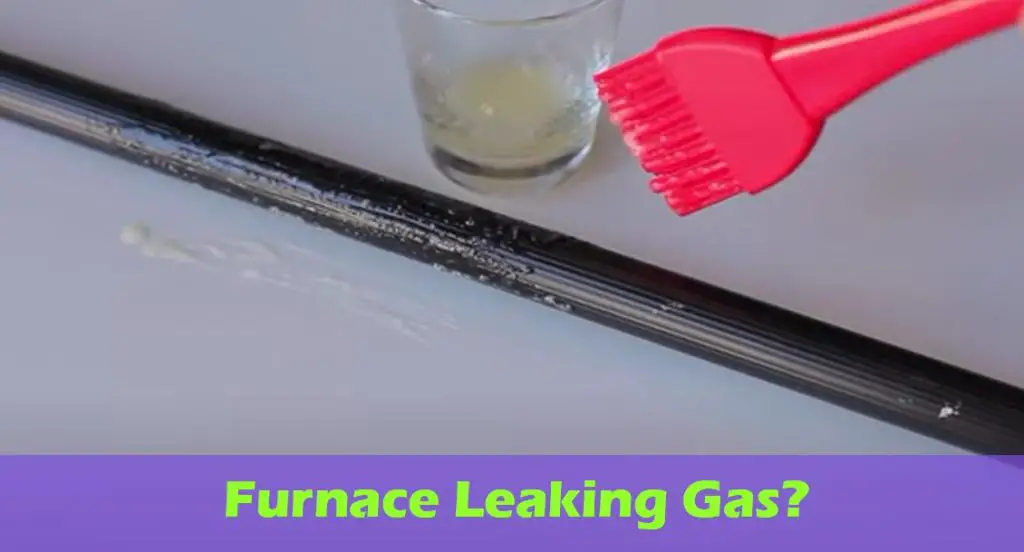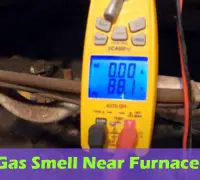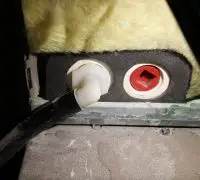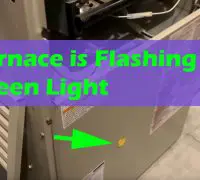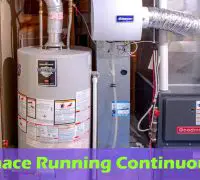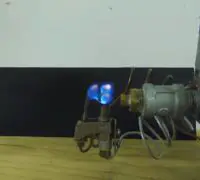The American Gas Association states that more than 74 million natural gas clients are in the United States. While a fantastic source for keeping warm for cooking, and numerous other applications, natural gas is highly flammable, and gas leaks pose a high risk of fire and explosion. When gas is leaking, several signs will reveal and you should be able to recognize such signs. You want to keep your family and house safe and knowing about furnace gas leaks is one responsible thing to do.
Page Table of Contents
Why do furnaces leak gas?
Nowadays, two types of gas furnaces are used: standard furnaces and high-efficiency gas furnaces. Both types of gas furnaces can leak, but for different reasons. Gas leaks can occur in the gas supply line to the furnace and a cracked heat exchanger is the primary reason.
Typically, the gas will be combusted in a chamber inside the heat exchanger and the blower will blow over it to collect the heat before it goes through the ductwork. A cracked heat exchanger will let the gas escape before it combusts and eliminate dangerous fumes inside your house.
Overheating is the most common cause of a cracked heat exchanger. Overheating will occur when there’s not enough airflow through the furnace to distribute heat safely. Duct blockages, dirty furnace filters, ductwork too small, or a furnace too big for a house are possible causes of furnace overheating.
Gas leaks can occur in the furnace itself or the gas lines leading to the furnace. Unfortunately, the leaks can generate illness and home fires. Always call a gas heater repair company if you detect signs of gas leaks in your home—do it before disaster strikes!
What are the signs of gas leaks from the furnace?
If you have an old gas furnace or skipped annual maintenance for your furnace, the risk of a gas leak is high. Even if modern gas furnaces are incredibly safe today, the risk of gas leaks is never null. Seals wear out in time and the equipment breaks down from intense use. The gas leaks typically take place in gas valves or furnace cracks.
That’s why an annual maintenance inspection is crucial for your gas furnace. You should know what to do when you smell gas leaking from the furnace. Even if some problems are minor, gas leaks are always a problem to resolve immediately.
Here are the signs that your gas furnace leaks gas:
Hissing noises
Every now and then, pipes that take natural gas into and through your house will develop cracks and holes. As the gas inside the pipes is under pressure, it will quickly come out of the tiny cracks and occasionally make a hissing sound. The hissing sound may be difficult to hear when the furnace is operating and you might hear it only after it has turned off.
Pilot flame
The furnace’s pilot light should always burn blue. Pay attention to the furnace’s flame. If it has turned orange or yellow, the furnace might generate harmful carbon monoxide gas and you should call an HVAC technician immediately.
Rotten egg smells
Many people describe the smell of natural gas as the smell of rotten eggs, but the comparison isn’t entirely accurate. Natural gases have no smell, but gas companies will add sulfur to the gas before sending it out to houses. The sulfur smell resembles rotten eggs and even filthy gym socks.
When a weird stink comes from your furnace, you might have a gas leak on your hands. Act rapidly!
Dying plants
House plants are great for many reasons and can indicate gas leaks in your home. Natural gas typically seeps into the soil that indoor plants are potted in. From there, it will alter the plant’s ability to absorb water and nutrients from the soil. After some time, the plants will wither and eventually die.
When you know that the house plants have plenty of water and sun but still die, a gas leak might be the cause. Call a certified technician to check out your furnace.
Flu-like symptoms
It’s not good for us to inhale natural gas. Even if brief exposure to natural gas won’t cause symptoms, we will develop various symptoms when inhaling natural gas for a long time. The main symptoms of natural gas exposure resemble those of the flu:
- Dizziness
- Nausea
- Headaches
- Fatigue and exhaustion
Sometimes, the pets will experience the symptoms before their human owners. If you have a cat or a dog and he gets ill suddenly, a gas leak might cause their illness.
What to do if you smell gas in the home
Here are some things you should do when you smell gas in your house:
- Avoid lighting matches and other fire sources
- Don’t use electrical devices or appliances that can generate a spark. It would help if you avoided fire risk at all costs.
- Turn off the gas source right away
- Evacuate the household
- Call the fire department from a safe distance
- Call your gas company and the local heating company
Be a responsible homeowner and learn how to prevent home fires and problems with the gas furnace or gas lines. Typically, gas lines are set up underground and remain reliable for many years. However, corrosion may occur and cause dangerous gas leaks. Gas leaks will happen as the gas travels into your home to your furnace and other power gas-burning appliances.
Gas leaks are always severe and require immediate action to protect yourself and your family. After professionals solve the problem causing the gas leak, you have to air out your house. Make sure you install an effective monitoring system after a gas leak experience. Look for high-quality carbon monoxide alarms to ensure high safety for you and your family.
Furnace gas leaks are avoidable. Here’s how!
The most efficient way to avoid gas leaks in your home is to take preventive measures. The most efficient are listed below:
Make sure that your furnace’s performance is adequate
Call an HVAC technician for a detailed inspection if you’ve just moved into a house and have a gas furnace. Have your old furnace checked out regularly as well. The condition and age of the gas furnace are essential in preventing gas leaks.
Effective maintenance
Only certified HVAC technicians should perform maintenance on your gas leaks. Most of the time, gas leaks occur due to poorly fitted furnace components or general disrepair. The older your furnace is, the more frequently it needs maintenance. You should call the pros at least once a year to inspect and repair your gas furnace.
Avoid DIY gas furnace repair
Some issues with a gas furnace have easy fixes that most homeowners can perform. However, we highly recommend you call the HVAC technicians to inspect and repair your gas furnace—staying safe is far more critical!
Furnace gas safety tips
It’s always better to be safe than sorry; this could never be truer than with a gas furnace. Here are some extra things to do to reduce the risk of gas leaks from your furnace:
- Install a carbon monoxide detector
Set up a carbon monoxide detector that has a loud sound. Carbon monoxide poisoning can be lethal, especially when you’re sleeping. Make sure that the detector comes with battery operated system.
- Check out the gas lines
If there’s grass or plants near the gas lines, pay attention to them. A gas leak will kill them and inform you that there’s something wrong with the gas lines. Have them checked out when the plants are dying.
- Do you hear any hissing
When pressurized gas escapes the pipes, it will make a hissing sound. Call the pros if you notice the hissing sound.
- Recognize the smell of carbon monoxide
It’s not the most accurate sign of a gas leak. As mentioned, carbon monoxide doesn’t smell. However, Mercaptan (Methanethiol) is added to natural gas to have a particular smell, similar to rotten eggs. Get out of the house and call the emergency number when you sense the sulfur smell in your house.
